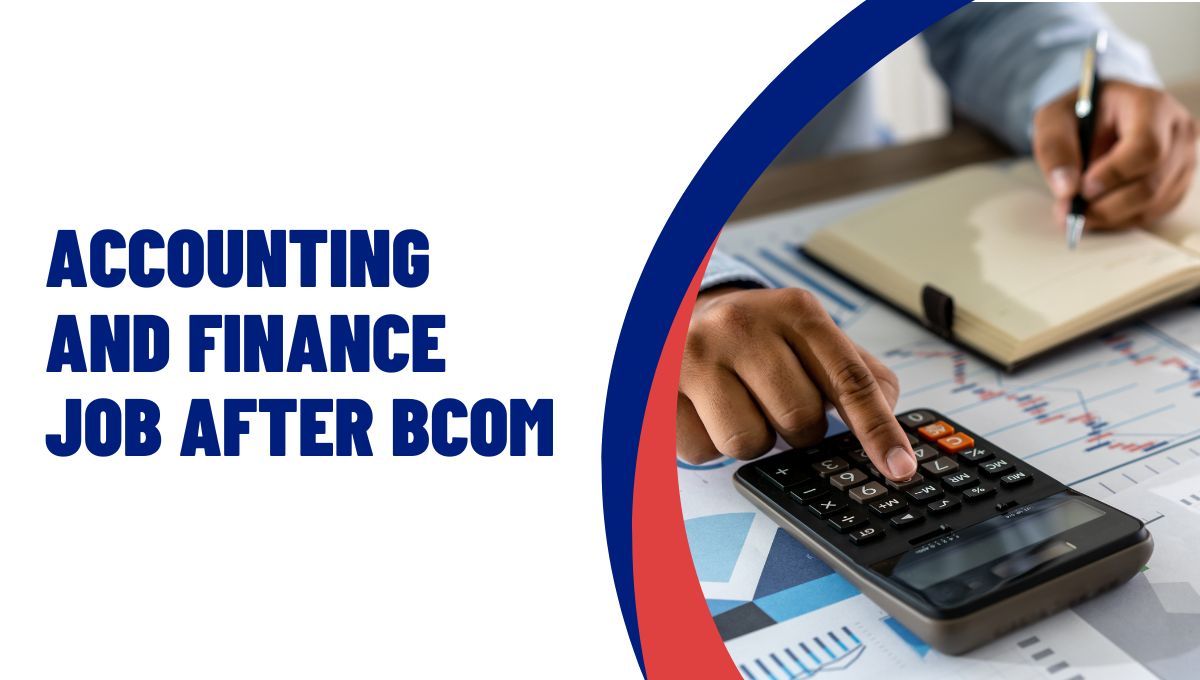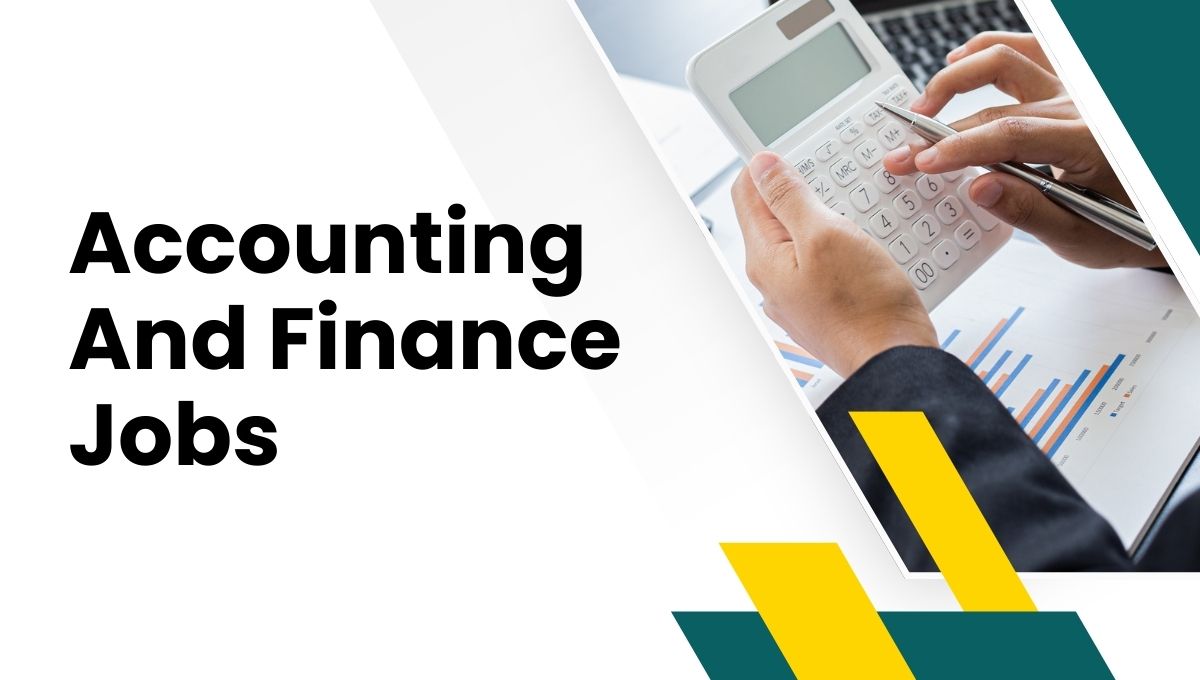Graduating with a BCom degree is a big achievement, but the real challenge begins when you start looking for your first job. Many students struggle because they aren’t sure where to begin or what skills employers actually want. If you’re feeling the same way, don’t worry, I’ve got you covered.
In this guide, I’ll walk you through everything you need to know about landing accounting and finance jobs after BCom, from building the right skills to cracking interviews. Let’s get started.
If you want to boost your career opportunities, consider enrolling in the ACCA course to gain international recognition.
Why Graduates Struggle to Find Jobs After BCom
A lot of fresh graduates think that having a BCom degree is enough to secure a good job. But in reality, most companies look for practical skills, experience, and certifications. Here are some common reasons why BCom graduates face difficulties:
- Lack of Practical Skills: Understanding theory is one thing, but applying it to real-world problems is another.
- Intense Competition: Thousands of students graduate every year, making it tough to stand out.
- No Internship Experience: Many freshers don’t have work experience, which puts them at a disadvantage.
- Unclear Career Path: Many graduates don’t know the difference between finance and accounting, leading to confusion when applying for jobs.
But don’t worry! There are ways to overcome these challenges and increase your chances of landing a job in the field.
Finance vs Accounting: Which One Should You Choose?
Before applying for jobs, it’s important to understand the difference between finance and accounting so that you can choose the right career path.
| Finance | Accounting |
| Focuses on managing investments, risks, and company finances | Focuses on tracking financial transactions and preparing reports |
| Involves decision-making based on financial data | Ensures accuracy and compliance with financial laws |
| Roles include Financial Analyst, Investment Banker, Risk Manager | Roles include Accountant, Auditor, Tax Consultant |
If you enjoy working with numbers, financial strategies, and investments, finance might be a better fit. But if you prefer bookkeeping, auditing, and ensuring compliance, accounting is the way to go.
Basics of Accounting and Finance: Skills You Need for Accounting and Finance Jobs
Having a BCom degree alone won’t guarantee you a job—you need specific skills to stand out. Here are some essential ones:
1. Basics of Accounting and Finance
Employers expect you to know fundamental concepts like:
- Financial statements (balance sheet, profit & loss statement)
- Taxation and GST
- Cost accounting principles
2. Excel & Financial Modeling
Advanced Excel skills are also the basics of accounting and finance. They can set you apart from other candidates. Learn how to:
- Use pivot tables and VLOOKUP
- Build financial models
- Analyse data for decision-making
3. Accounting Software Knowledge
Most companies use accounting software for bookkeeping. Some popular ones include:
- Tally
- QuickBooks
- SAP
4. Strong Analytical & Problem-Solving Skills
Whether in finance or accounting, you’ll need to analyse numbers and make strategic decisions.
5. Communication Skills
You’ll be working with teams and clients, so clear and professional communication is a must.
Best Jobs After BCom for Freshers
Here are some of the best jobs after BCom that fresh graduates can apply for:
| Job Role | Key Responsibilities |
| Accountant | Manage financial records, prepare tax returns |
| Financial Analyst | Analyse financial statements, assist in decision-making |
| Tax Consultant | Help businesses with tax filing and planning |
| Auditor | Review financial records for accuracy |
| Investment Banking Analyst | Assist in mergers, acquisitions, and financial modelling |
Each of these roles requires different skill sets, so make sure to build expertise in your chosen field.
How to Get Your First Job in Accounting and Finance
If you’re struggling to land your first job, follow these steps:
1. Get Certified
Many employers prefer candidates with additional certifications. One of the best certifications is the ACCA course, which gives you global recognition in accounting and finance.
2. Gain Internship Experience
Internships add value to your resume and help you gain hands-on experience. Start with:
- CA firms
- Corporate finance departments
- Banks and investment firms
3. Build a Strong Resume & LinkedIn Profile
Your resume should highlight:
- Relevant coursework and projects
- Certifications like ACCA or CFA
- Internships and practical experience
A well-optimised LinkedIn profile can also attract recruiters.
4. Apply for Entry-Level Jobs
Look for job postings on:
- Naukri
- LinkedIn Jobs
- Indeed
- Company career pages
5. Prepare for Interviews
Common interview questions include:
- What is the difference between finance and accounting?
- How do you analyse a balance sheet?
- Explain a financial ratio you recently used.
Practice answering these questions confidently.
The Role of Certifications in Landing Accounting and Finance Jobs
The truth is, a BCom degree alone might not be enough to stand out in today’s job market. Employers prefer candidates with additional certifications that prove they have practical knowledge.
Some of the most useful certifications include:
- Chartered Accountant (CA): One of the most respected credentials for finance professionals.
- Certified Management Accountant (CMA): Focuses on management accounting and financial management.
- Association of Chartered Certified Accountants (ACCA): An internationally recognised qualification.
- Financial Modelling and Valuation (FMVA): Ideal for those who want to work in investment banking or corporate finance.
These certifications help bridge the gap between theory and real-world application, making you a stronger candidate for accounting and finance jobs.
Learn more about ACCA
Common Mistakes Freshers Make in Accounting and Finance Job Interviews
Your resume might get you an interview, but what you say in the interview determines whether you get hired. Here are some common mistakes freshers make:
- Not researching the company: Employers expect candidates to understand their business before the interview.
- Weak understanding of basic accounting concepts: Many candidates fail to explain key concepts like depreciation, accrual accounting, or cash flow.
- Focusing only on technical skills: Soft skills like communication, problem-solving, and teamwork matter too.
- No practical experience: Even if you don’t have a job, working on real-world case studies, Excel projects, or internships can make a difference.
To improve your chances, prepare answers to common interview questions for accounting and finance jobs and practice with mock interviews.
Imarticus Finance Job Interview Tips
Future Trends in Accounting and Finance Careers
The finance industry is evolving rapidly, and staying updated with trends can help you stay ahead. Some key trends to watch out for:
- Automation & AI in Accounting: Many repetitive tasks like bookkeeping and data entry are now automated. Knowing how to use AI tools in finance is a plus.
- Blockchain & Cryptocurrency: Companies are adopting blockchain for secure transactions, and financial professionals who understand it have an edge.
- Data Analytics in Finance: Financial analysts now rely on data-driven insights to make better decisions. Learning financial analytics can boost your job prospects.
- ESG (Environmental, Social, and Governance) Accounting: More companies are focusing on sustainability reporting, opening new career opportunities.
Keeping up with these trends and upskilling accordingly will help you stay relevant in the industry.
Conclusion
Starting a career in accounting and finance after BCom may seem challenging but with the right skills and strategies, you can secure a great job. With the right mindset and continuous learning, you’ll soon land the job you’ve been aiming for. Good luck!
FAQs
- What are the best accounting and finance jobs for freshers?
Some great entry-level jobs include Accountant, Financial Analyst, and Tax Consultant.
- What is the difference between finance and accounting?
Finance focuses on managing money and investments while accounting deals with recording and analysing financial transactions.
- How can I get a job after BCom with no experience?
Internships, certifications like ACCA, and strong networking can help you land your first job.
- Is accounting a high-paying career?
Yes, senior roles like CA, CFA, and Investment Bankers earn well over ₹10 LPA.
- What are the highest-paying jobs after BCom in accounting and finance?
Some of the best-paying jobs include Chartered Accountant (CA), Investment Banker, Financial Analyst, Risk Manager, and Management Accountant. Salaries depend on experience, certifications, and the company you work for.
- Do I need to know advanced Excel for accounting and finance jobs?
Yes, Excel is a must-have skill for most accounting and finance roles. You should be comfortable with formulas, pivot tables, VLOOKUP, and financial modelling basics. Many companies test Excel skills during interviews.
- How long does it take to get a job after completing a BCom?
It depends on your skills, certifications, and job market conditions. With just a BCom, it may take a few months, but if you add certifications like ACCA, CMA, or CFA, you can land a job faster and with better pay.



